Vaccination from pneumococcus.
Contents
- Pneumococcal vaccination for children and adults: the name of the vaccine
- Pneumococcal vaccination for children and adults: from what protects?
- How is the pneumococcal vaccine tolerated: the child's reaction, temperature, side effects
- How long does the temperature persist after pneumococcal vaccination?
- Complications and consequences of pneumococcal vaccination in adults and children
- Pneumococcal vaccine: contraindications
- Do I have children and adults vaccinated against pneumococcal infection, whether it is necessary to do?
- At what age do pneumococcal inoculation: calendar, schedule
- Where do pneumococcal vaccination for children and adults?
- Is it possible to walk after vaccinating an pneumococcal with a child?
- Can I get pneumococcal vaccination?
- Pneumococcal inoculation Prewar: Komarovsky
- Pneumococcal vaccine: feedback from
- Video: Pneumococcal infection - what is it like to protect yourself? Tips for parents
Pneumococcal infection is considered quite common. As the statistics show, every minute after the complication of this infection one child in the world dies. Is it possible to protect against this disease?
Pneumococcal vaccination for children and adults: the name of the vaccine
In our country, several types of drugs that protect a person from pneumococcus are used:
- "Pnevmo 23".This vaccination is produced by the French company Sanofi Pasteur. The vaccination is intended for children from two years old and for adults.
- Prevenar. It is widely used in the territory of our state. The country of manufacture is the United States of America, and its company "Wyeth" produces. This vaccination is the most immunogenic. This means the following - the antigen of the pathogenic microorganism remains in the body for a long time.
- "Synflorix".The vaccine is produced by a Belgian company. The vaccine during its use is done almost the same way as during the use of the Prevenar vaccine. In the chart there is only a slight difference.
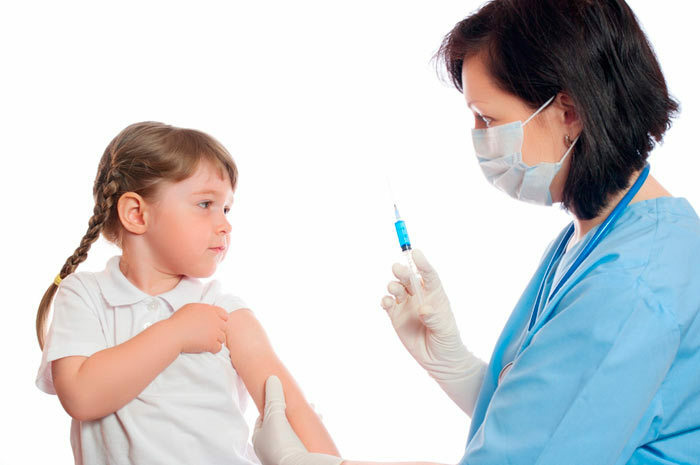 Vaccinations from pneumococcus
Vaccinations from pneumococcus Each of these drugs contains a certain number of antigens, which is why they actively protect the human body from almost all diseases that have arisen due to the development of this bacterium.
Pneumococcal vaccination for children and adults: from what protects?
Pneumococcus is a terrible infectious disease that can lead to a number of other diseases. Pneumococcal vaccination will also protect you from such diseases:
- From pneumonia
- From bronchitis
- From purulent meningitis
- From sepsis
- From endocarditis
- From sinusitis
- From arthritis and many other diseases
Surely you know that these all diseases carry a huge threat forhuman life, causing subsequently a variety of complications. In some cases, even a partial or complete loss of performance.
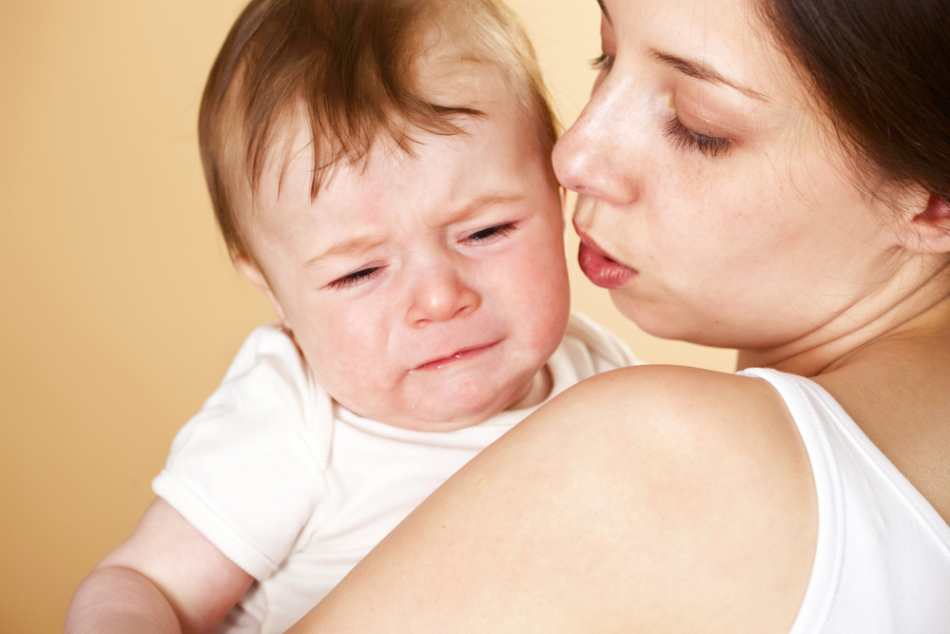 Vaccination protects against many diseases
Vaccination protects against many diseases It is worth noting that vaccination against pneumococcus is considered quite normal in many countries. It allows you to significantly reduce the likelihood of serious illnesses, and most importantly, in children.
How is the pneumococcal vaccine tolerated: the child's reaction, temperature, side effects
All those vaccinations that we have listed to you can easily be carried by the human body. In extreme cases there are complications. Some side effects may also occur:
- On the skin in the place where the drug was injected, you may experience slight redness or denseness. This is usually associated with the functioning of the immune system. You can also feel the discomfort caused by the painfulness of this place.
- You may have a fever of up to 38 ° C.
- You can also feel a slight weakness in the body, you may lose your appetite.
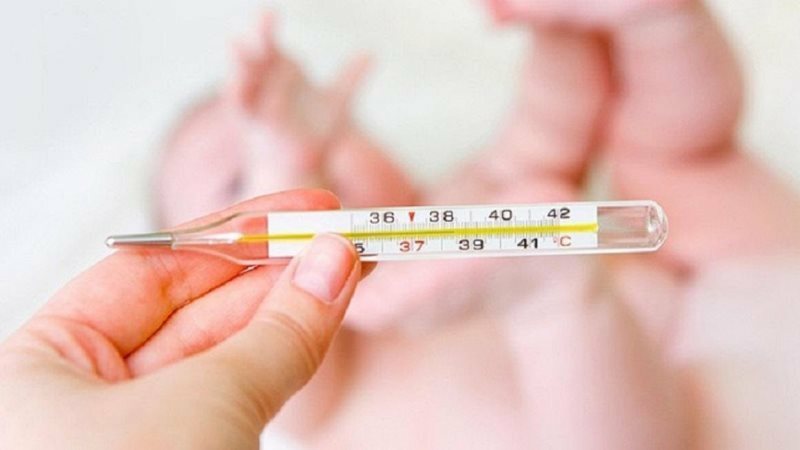 There are negative reactions to the inoculation of
There are negative reactions to the inoculation of The responses we have provided are generally related to the disease itself. They only signal that vaccination really has a positive effect. But if you notice that the symptoms and side effects did not disappear after 2 days or the general condition worsened, then you need to urgently turn to the help of your doctor.
How long does the temperature last after pneumococcal vaccination?
The duration of the elevated temperature after vaccination is usually determined by the type of vaccination administered. If the vaccination contains dead particles of microorganisms that cause infectious diseases, then the high temperature lasts about a couple of days.
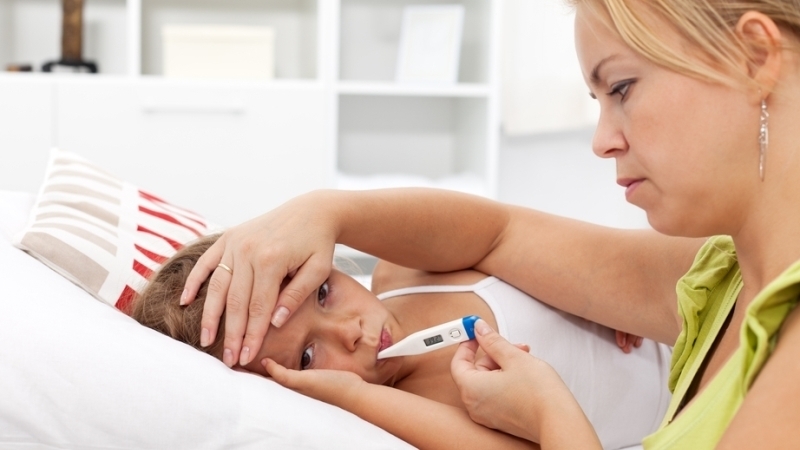 The temperature can hold up to 5 days
The temperature can hold up to 5 days As a rule, the temperature after the pneumococcal vaccination goes by itself and never needs additional treatment. If the preparation contains weakened, but still living microorganisms, which are considered pathogens of infections, then the high body temperature after vaccination lasts up to 5 days. If the temperature does not go down after 5 days, then most likely you have developed a cold or another infection that does not apply to the vaccine itself.
Complications and consequences of pneumococcal inoculation in adults and children
Any vaccination against pneumococcus can cause a number of complications. Among them is the following types of complications:
- Allergic reaction
- Hives
- Muscle cramps
- Dyspeptic status, namely: nausea, vomiting, diarrhea
These manifestations are not considered so harmless, because they do not pass by themselves. These manifestations are complications that can cause a lot of other diseases.
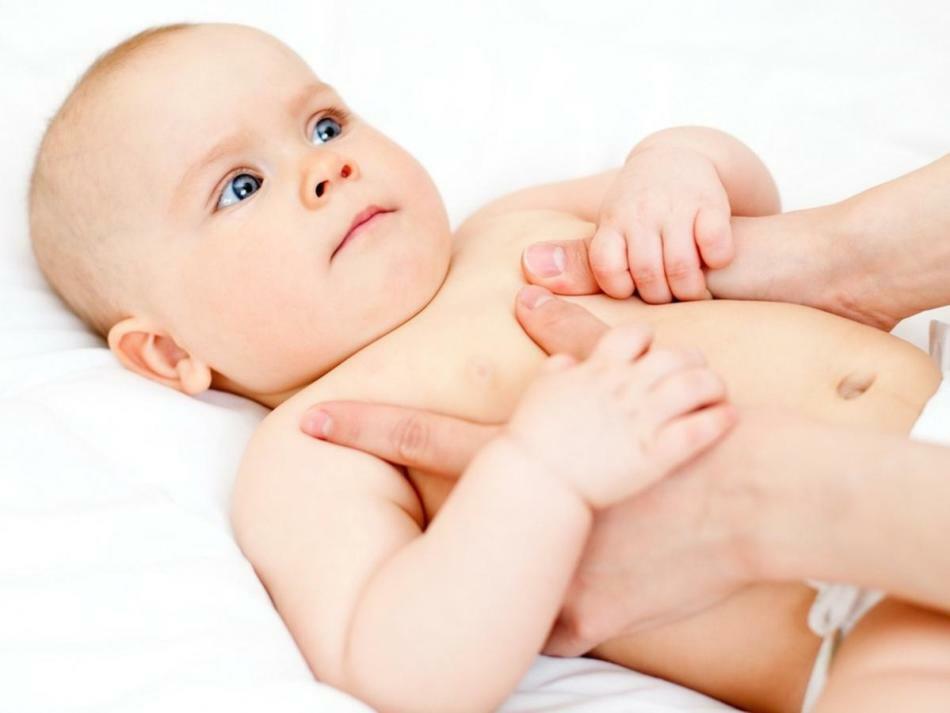 Complications after vaccination with
Complications after vaccination with If you have any of these symptoms, contact your doctor immediately. Doctors do not advise to introduce a repeat vaccine if these complications occur.
Pneumococcus vaccination: contraindications
Due to the reduced reactogenicity of vaccines against pneumococcus, there are very few contraindications to vaccination. Among them is the following:
- Hypersensitivity to certain substances in preparations.
- Severe allergy to previously administered vaccines.
- Pregnancy, namely the first trimester and the second trimester.
In other situations, including prematurity of the fetus, immunodeficiency and the presence of pneumococcal disease in an anamnesis, the vaccine has no contraindications.
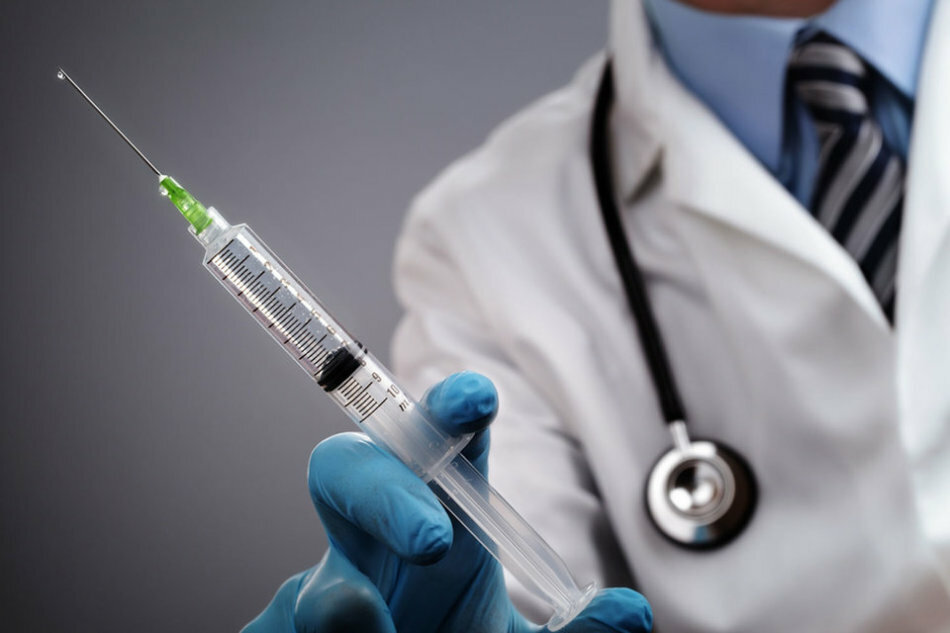 Inoculation has no contraindications
Inoculation has no contraindications There are truth and temporary contraindications. In such cases, the introduction of pneumococcal grafting should be postponed for some time. To such temporary contraindications it is worth noting:
- The presence of any type of acute disease.
- Increased body temperature due to any cause.
- Exacerbation of some chronic disease.
In similar situations, pneumococcal grafting is performed only if the person's condition fully comes back to normal.
Is it necessary to vaccinate children and adults from pneumococcal infection, should it be done?
It is very difficult to overestimate the importance of pneumococcal vaccination. This achievement of our modern medicine very often saves millions of lives across the planet. If you have vaccinated yourself and your child, you can now not be afraid, since you are under reliable protection from the most dangerous diseases and viruses.
There is another view on this vaccination. Many people doubt whether to do this vaccine and add it to the calendar with other vaccinations. Will not this bring a big load on the body, especially children's?
 The need for vaccination against pneumococcus
The need for vaccination against pneumococcus There are parents who refuse to vaccinate. They do not want to give their children pneumococcal vaccination. A large number of side effects frighten them, and some fatality after the introduction of the vaccine optimism does not inspire at all.
Is it worth it to do an inoculation against pneumococcus? Is it obligatory? There are no unequivocal answers to these questions. In fact, a person must decide for himself.
At what age do pneumococcal inoculation: calendar, schedule
Many parents know that children are being vaccinated starting to do almost from birth. Children's vaccinations are carried out according to a special calendar with vaccinations. The calendar of this calendar may shift due to the characteristics of a particular child. To date, the scheme for administering the vaccine is as follows:
- Babies, the age of which is up to 6 months of , is vaccinated according to this scheme 3 plus 1. The first vaccine is generally administered at 2 months, the subsequent vaccine is given at intervals of 2 months. Then there is a revaccination. It is done when the child is already 1 year old and up to 1.3 years old.
- If there is no possibility to carry out pneumococcal prophylaxis for up to 6 months, then the vaccination is done when the child is performing for more than 6 months .In this case, it is done according to this scheme: 2 plus 1. The 1st and 2nd dose is carried out with a difference of 1 month, the 3rd after one year. Basically, the third is done when the child turns 12 months old.
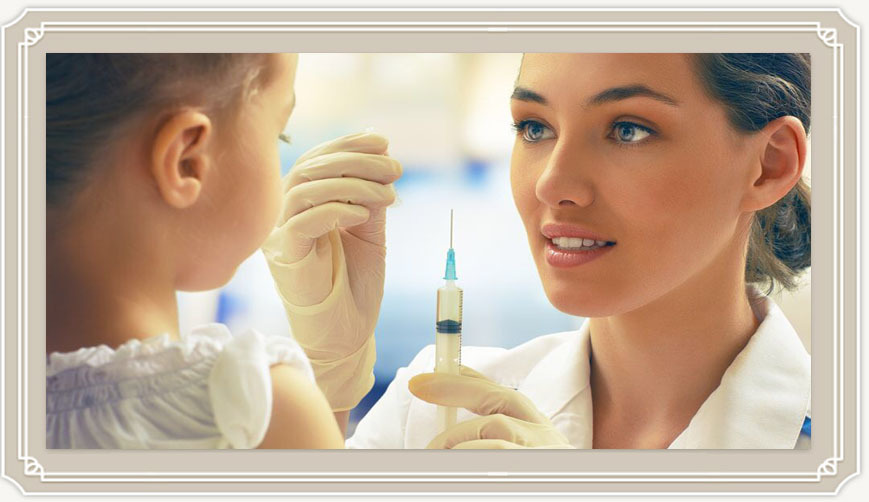 Schedule of inoculations
Schedule of inoculations - Children from the 1st year to 2 years of are given only 2 doses of vaccination. Between these vaccinations the interval is not less than 2 months. Only then the vaccine will bring a positive result.
- If parents want to make a 2-year-old child vaccinated against pneumococcus before entering kindergarten, then the vaccine is administered once.
After the child turns 5 years old, he does not have to be vaccinated. There are truth exceptions when vaccinations are made for schoolchildren and adults.
Where do pneumococcal vaccination for children and adults?
- Before entering the vaccine, the doctor carefully examines the patient, whether it is a child or an adult.
- He assesses the general condition of the child and adult, measures the temperature of his body, also measures the pressure and checks the reaction that gives the primary introduction of the drug.
- If the patient is perfectly healthy, the doctor makes an injection.
- The drug is injected under the skin into the shoulder of ( usually a deltoid muscle).
Is it possible to walk after vaccinating pneumococcal with a child?
Many people are very worried about this issue. He has an unambiguous answer - to walk with the child after the introduction of the vaccine is not only allowed, it must be done necessarily.
Can I get pneumococcal vaccination?
All doctors will tell you in one voice - to wet the place where the vaccine against pneumococcus is made, because water can not in any way affect the effectiveness of the vaccine. But there are also contraindications:
- It is not recommended to put compresses on that place.
- Also, do not paste a patch.
- And most importantly, in no case can the place of grafting be treated with iodine.
It is these manipulations that can cause the onset of purulent wound and inflammation on the skin.
Pneumococcal inoculation Prevenar: Komarovsky
Komarovsky claims that pneumococcal vaccination is a drug that strengthens the immune system. This effect is obtained due to the fact that the patient is injected with weak trace elements, to which immunity is produced.
He claims that Prevenar is needed to develop this immunity. It remains only to determine what the immunity should fight against.
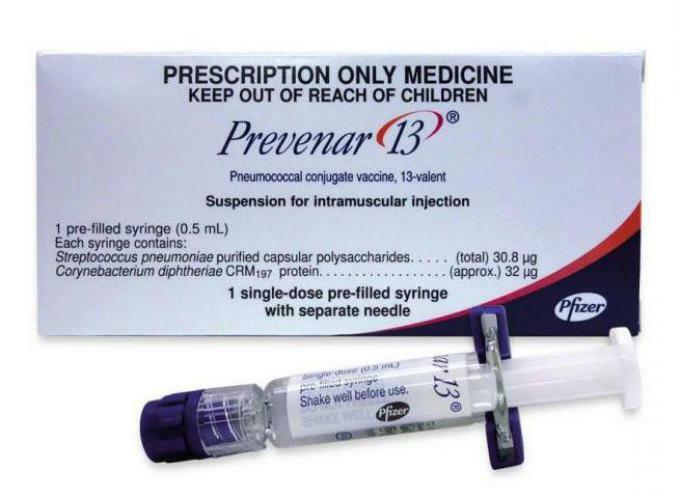 Means for pneumococcus
Means for pneumococcus Streptococcus is found in the digestive and respiratory system of humans. Very often they can be found in the throat, in the oral cavity, in the nose, and also they are found in the large intestine. These pests can cause a variety of inflammation, for example, angina or pneumonia.
It's a pity, but these diseases and many similar ones are considered quite common, and they do not always get cured. The conclusion is only one: Prevenar is the ideal medication that helps to avoid serious infections.
Pneumococcal vaccine: feedback from
Lydia, 25:
"I've been thinking about whether this vaccination is needed for a long time. Still, such vaccinations have some contraindications and possible consequences after them. But after much thought, I decided that I would still do it. My child is just over 2 years old. We're going to go to the kindergarten. I think that the consequences of diseases, if not vaccinated, are much worse than side effects. "
Olga, 20 years old:
"I vaccinated my child against pneumococcus. We did this for the first time when my son was 6 months old. Since, in order to form a child's immunity, you need to re-vaccinate and wait another 1 month. Since 12 months my child already goes to a kindergarten. I believe that the vaccine is the ideal drug that protects the human body from all sorts of diseases, pathogens that provoke the occurrence of pneumococcal infection.
